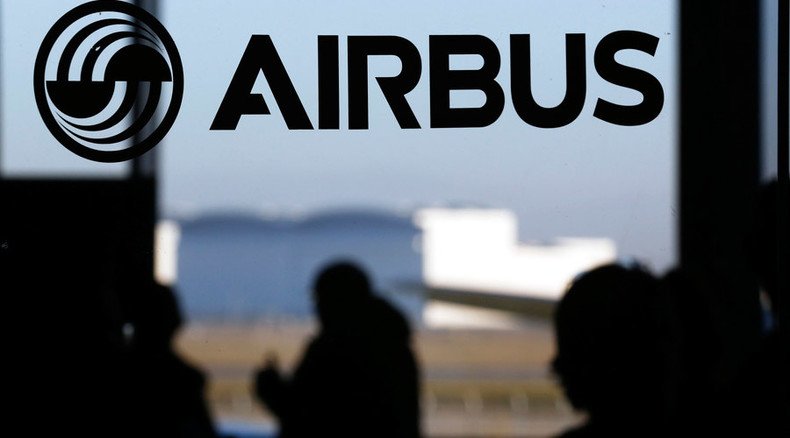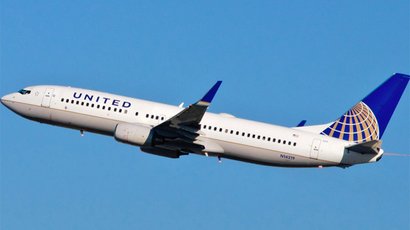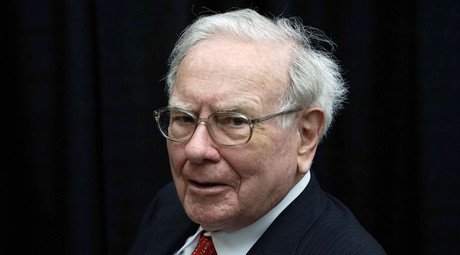Airbus opens first US assembly line in Alabama after heavy state, local incentives

International aerospace behemoth Airbus – competitor of US-based company Boeing – has opened a new, $600,000 jetliner final assembly line plant in Mobile, Alabama, after state and local governments promised to invest $158 million to lure the company.
The 53-acre Airbus U.S. Manufacturing Facility, the company's first US production site, is expected to manufacture 40 to 50 aircraft per year by 2018, including A319, A320, and A32 jetliners. Most A320 Family jets will be made for North American customers, the company said.
Local, state, and federal officials were present Monday at a dedication ceremony for the plant, construction for which began in 2013.
“It’s a historic day,” said Airbus CEO Fabrice Bregier. “Having an assembly line in the United States will increase our visibility.”
The Airbus U.S. Manufacturing Facility joins several other Airbus operations across the U.S. #AirbusInAlabamapic.twitter.com/Am6PL9jedw
— Airbus In the U.S. (@AirbusInTheUS) September 14, 2015But before Airbus committed to Alabama, it took heavy investment promises from state and local officials. Thus far, the state has given Airbus $41.2 million, with $29.3 million left to go, according to the Alabama Media Group. Alabama Industrial Development Training is on the hook for $51.8 million, while Mobile County has given $10.5 million of $14 million it has promised. The city of Mobile has paid out $10 million, with a potential $8 million left.
Airbus is now ready to start #A320 Family production in @City_of_Mobile, USA! #AirbusInAlabamahttp://t.co/YS1gI6qoIZpic.twitter.com/kCvRZ66BFl
— Airbus (@Airbus) September 14, 2015The money is being used to build Airbus' plant and to boost road quality in the area, among other expenditures. Airbus will also receive lucrative tax breaks for the time being. The state was attractive for Airbus given its low minimum wage – $7.25 per hour – and its employment benefit requirements, which are 30 percent lower than in Europe, according to AFP.
READ MORE: Airbus presents A-350-900 at MAKS-2015 aviation expo, will continue Russia investments (VIDEO)
Alabama officials said the investment will pay off in the long run, with property taxes – an estimated $126,000 for local municipalities and $34,000 for the state – and thousands of jobs, both directly from Airbus and indirectly in the community.
Welcome home, sweet home, @Airbus! @City_of_Mobile#AirbusinAlabama@AirbusintheUSpic.twitter.com/4irgI9Qb2m
— GE Aviation (@GEAviation) September 14, 2015Congratulations, @Airbus! https://t.co/8G1bAFsH54
— Pratt & Whitney (@prattandwhitney) September 14, 2015The plant will eventually employ 1,000 people with an annual payroll of $61.7 million, though only about 260 workers are currently on the job.
"The domino effect comes from suppliers following us into the Gulf Coast -- and with those new jobs comes their families, their jobs, schools, investment in homes, etc. -- a massive growth catalyst for the local economy," said Airbus Americas communications manager Mary Anne Greczyn in a statement.
READ MORE: Doooor! Airbus part falls from sky, interrupts golf match in North Carolina
Airbus – based in Toulouse, France – is obliged by the state to maintain at least 600 employees for three of the next six years as the plant is finally certified. If employment dips below 600, Airbus would have to proportionally reimburse the state.
3 years after selecting Mobile to build #A320 Family aircraft,let's open our U.S. Manuf. Facility! #AirbusInAlabamapic.twitter.com/wgopVsHOzR
— Airbus (@Airbus) September 14, 2015Airbus is hoping that, like foreign automakers, setting up shop in the US will help sell products to American customers. The company, a prime rival of fellow aerospace giant Boeing, seeks 50 percent of the US market, according to Reuters.
“Mobile does do three things for Airbus,” Richard Aboulafia of the Teal Group Corporation told AFP. “It gives them a larger industrial presence, which could be useful in pursuing defense contracts. It puts pressure on trade unions back in Europe, because labor in Alabama costs less. And it diversifies their currency exposure, which could be useful if the euro gets strong again.”














